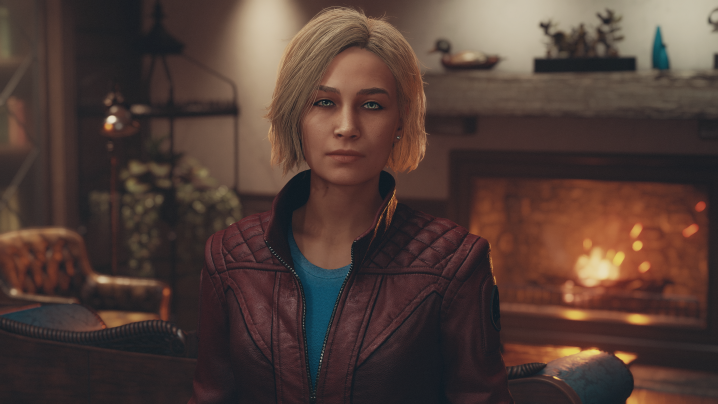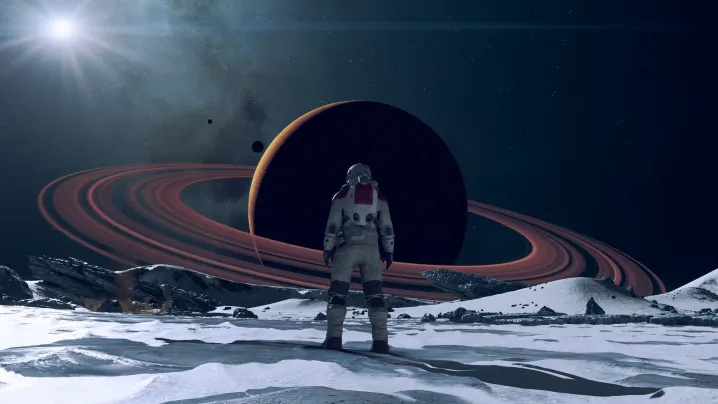(Warning: This article contains spoilers for Starfield and its conclusion.)
When I embarked on my journey into Starfield, I anticipated a sci-fi twist, but I must confess, I was pleasantly surprised when the Starborn unveiled the game’s central theme – the multiverse.
A sense of caution accompanied my excitement. The concept of multiple universes has been a recurring theme in fiction for quite some time. Recent films like Spider-Man: Into the Spider-Verse and Everything Everywhere All at Once have elevated the popularity of multiverse narratives. However, not all media has handled this concept adeptly.
Just this year, movies such as Ant-Man and the Wasp: Quantumania, Spider-Man: Across the Spider-Verse, and The Flash have prominently featured the multiverse in their plots, with varying degrees of success. The sci-fi concept seems to be approaching saturation, leading to concerns that Starfield might feel derivative and hasty in its use of the idea. Fortunately, Bethesda Game Studios managed to infuse it with creativity, weaving it into the thematic fabric of a game that explores humanity’s innate drive to explore space. Moreover, it’s intricately tied to a gameplay system that fundamentally transforms Starfield upon completion.
The Anatomy of a Compelling Multiverse Story
When executed masterfully, multiverse narratives serve as a powerful tool for examining certain aspects of humanity’s essence. Spider-Man: Into the Spider-Verse, for instance, employs the multiverse to convey that anyone can become a hero, offering Miles touchpoints on his personal journey to self-discovery. Everything Everywhere All at Once employs the multiverse to help Evelyn appreciate her existing life by showcasing the myriad possibilities it holds. These films rely on the multiverse thematically to achieve their greatest impact.
On the other hand, subpar multiverse stories, exemplified by The Flash, often misuse the concept, using it primarily for fan service. The film’s well-known multiverse scene filled with cameos during its climax contributes little to the plot beyond establishing universe-threatening stakes, which should already be clear from prior narrative developments.
While witnessing Barry interact with another version of himself is one of the movie’s stronger moments, it lacks the sense of an alternate Barry, feeling more like a past incarnation. The Flash could have been a time travel movie rather than a multiverse one, but it prioritized cameos and franchise opportunities over thematic depth.
This brings us to Starfield, which had the potential to go either way. Bethesda Game Studios could have exploited the multiverse to shoehorn in numerous references to The Elder Scrolls and Fallout or to rationalize the antagonists’ extraordinary power. Instead, Starfield ingeniously incorporates the multiverse revelation to strengthen and enrich the themes it was already exploring.
Elevating the Multiverse’s Significance
The heart of Starfield’s narrative revolves around the sacrifices humanity makes in its relentless pursuit of exploring the unknown. This theme resonates throughout the story at various levels. On a personal level, Sarah Morgan’s companion quest reveals her lifelong dedication to exploring the universe and managing Constellation, at the cost of never forming deep personal connections. As someone who has often prioritized work over social life, this struck a chord with me.
In terms of worldbuilding and the main storyline, we discover that humanity’s creation of the Grav Drive, which made space travel more accessible and promised everlasting human existence through exploration and colonization of other planets, has devastated Earth’s atmosphere. Consequently, humanity lacks a true home and continues to grapple with the same issues of conflict, both military and religious, that plagued Earth.

These elements showcase a profound understanding of Starfield’s central theme, and the introduction of the multiverse adds yet another layer. Humans are not content with merely exploring the universe; they aspire to conquer the multiverse, regardless of the cost. In doing so, they transform into Starborn and gain unprecedented power, but they also relinquish a part of their humanity.
This transformation is evident in The Hunter and The Emissary, both of whom initially appear detached and aggressive upon meeting the player. They prioritize reaching The Unity, neglecting to appreciate the uniqueness of their current universe. They are consumed by their addiction. Initially dismissive of the personal struggles of these Starborns during my initial playthrough, I found myself exhibiting similar behavior once I entered The Unity and became a Starborn during my second playthrough.
The Most Unsettling New Game Plus Experience
In Starfield, New Game Plus takes a unique twist, intricately weaving the main storyline and themes into the gameplay. Players find themselves in control of the same character, albeit as a more potent Starborn, but in a different universe. The moment I stepped into The Lodge after my initial rebirth, my confidence quickly waned. No one recognized me; confusion shrouded the concept of a Starborn, and trust was in short supply, even from my friend Sarah Morgan.
I felt out of place, detached, and isolated, despite having the opportunity to relive the entire Starfield journey from the beginning. Instead, I chose to bypass the narrative, opting for a speedrun to amass artifacts, reach The Unity, and undergo rebirth in yet another universe. This pattern continued into a third playthrough. Starfield consistently reminded me that exploring the boundless expanse of the universe (and the multiverse) alone lacked fulfillment. True satisfaction derived from pursuing activities you cherish with individuals you hold dear. This profound realization only dawned on me when I experienced it firsthand through my own choices and gameplay.
Although Starfield’s utilization of the multiverse concept might initially appear as a nod to a prevailing narrative trend, it deviates significantly. The tale it weaves and the central thematic elements it endeavors to convey necessitate the sci-fi backdrop for their full impact. Consequently, I hold this multiverse narrative in high esteem, particularly as sci-fi elements gain prominence within the realm of video games.
Starfield is currently available on Xbox Series X/S and PC.

